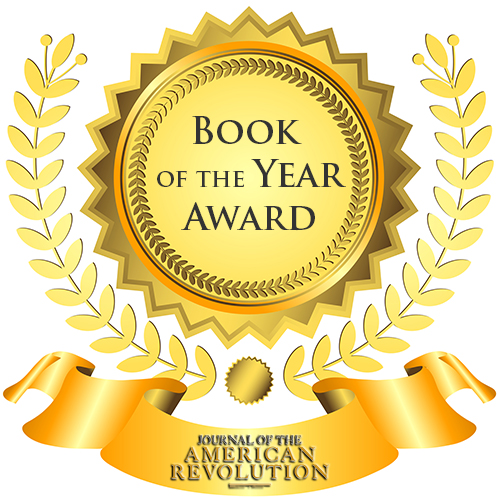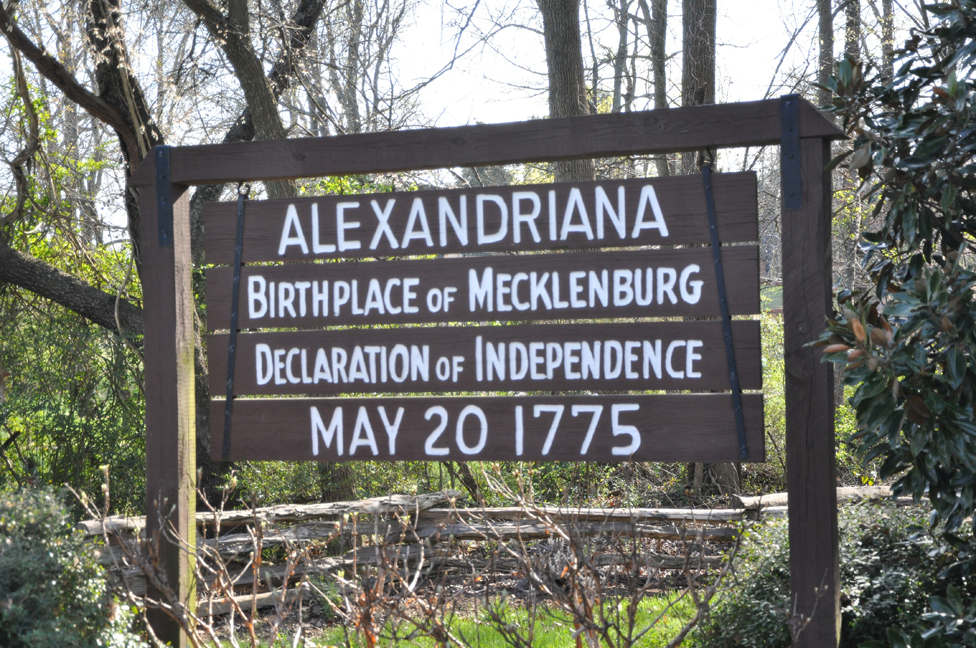Of all the disputed topics, events, reputations or battles of the Revolution, which is the greatest? Explain.
Militarily, Howe’s failure to pursue Washington’s beleaguered force trapped on the tip of Long Island remains something of a puzzle, despite attempts to reconstruct an answer. On a different note, this question intrigues me. I think we should have more controversies. Too often we accept pat narratives constructed from flimsy nineteenth century sources. Strict adherence to contemporaneous accounts would reveal the gaping gaps in our reconstructed renditions.
–Ray Raphael
Whether George Washington was a great general – and a masterful politician – or was he simply lucky? One historian, author of numerous books, has assured me the latter is the case. I politely told him we disagreed – strongly. When I wrote a history of West Point, I interviewed several dozen generals. I asked almost all of them what they thought of Washington. They said he was a great commander. Why? BECAUSE IN LATE 1776 HE CHANGED THE STRATEGY OF THE WAR WHILE EVERYONE ELSE WAS LOSING HIS NERVE AND WITS. “Henceforth we shall never…put everything to the risk. Instead we shall protract the war.”
–Thomas Fleming
There are many candidates for this honor, but at the current time I would suggest that it’s the ongoing debate about who mattered the most in the Revolution, ordinary persons or major leaders. Actually, both mattered, but some more than others. Take the legendary midnight ride of Sybil Ludington, who raced across the Connecticut countryside in April 1777 to rally the militia against a large British raiding party that destroyed Continental supplies at Danbury. Some would have it that her ride was more important than Paul Revere’s. Not so. The Connecticut militia showed up too late and fought ineffectively. Revere, we know, was one of many riders the night before Lexington and Concord, but the militia did show up big time and fought effectively on April 19, 1775, in battles that launched the Revolutionary War.
–James Kirby Martin
MASSACRE! From the Boston Massacre to Little Egg Harbor, Cherry Valley, Wyoming Valley, and the Waxhaws accusations of massacre flew at every opportunity and, indeed, continue to this very day. We debate the definition of the word, the disparity in casualty counts, and the manner in which victims met their fate. Were they in bed sleeping? Killed while trying to surrender? Scalped by Indians? Or, perhaps even victims of a fair but one-sided battle? Each side has its own perspective and draws its own conclusions but, much to my continuing delight, the debate never ends.
–Wayne Lynch
A controversy that I still see continuing occasionally is an academic dispute over how important George Washington was to winning the Revolutionary War. Knowledgeable naysayers point to generals who were superior to Washington as military tacticians, such as Lee or Gates or even Arnold. But keeping the Continental Army together, along with certainly winning battles, was essential to winning the war. The rebellion was embodied in the American Army and Washington was the Army. He exemplified the traits that kept it from dissolving, as it most certainly would have.
Washington had the physical presence and charisma, tapered with self-control and amazing courage. He bowed to civilian control and his ideals for a republican government never wavered. His wealth made him less corruptible and showed he had more to lose if he failed. But it was his character and his leadership skills that made Washington, as Flexner said, “the indispensable man.”
–John L. Smith, Jr.
The American Revolution was an insurgency founded on a perversion of longstanding British law and custom; it was, in short, illegal. Notwithstanding the Declaration’s grandiose language, it served only to obfuscate the true state of the colonies’ condition attempting to put a legitimate face on a very shaky legal foundation. Americans had good lives under British rule, paid little taxes, were not experiencing military control and the future post-1763 portended any number of outcomes short of war.
However, Boston-based firebrands with their florid rhetoric gained unwarranted attention from an awe-struck population willing to fall into line rather than face questionable measures instituted by their “enforcers.” This was a society at silent war with itself as elites acted in protectionist manners at the expense of farmers, tradesmen and mechanics in their efforts to rally the population in general to make victory more likely and their own chances of being tried and executed for treason less so.
–Gary Shattuck
Did an actual conspiracy exist in the so-called “Conway Cabal” and was Horatio Gates a party to a plot to remove Washington as commander of the Continental army? Some congressmen and private citizens complained about Washington’s generalship and some doubtless would have preferred that he be replaced. But did they enter into a conspiracy? I don’t think so and, while Gates certainly did nothing to stop the dissenters, evidence is lacking that he was part of any plot. Nevertheless, that there was disaffection late in 1777 made the episode crucially significant for the course of the war. A collateral question, which has not been fully explored, is whether Washington’s belief that he might be overthrown affected his subsequent generalship? From 1778 until Yorktown in 1781 he “slept away” his “time in the field,” as Thomas Paine subsequently charged. Was Washington’s inaction due to fear of what might occur should he fail yet again?
–John Ferling
By assassinating Archduke Franz Ferdinand and his wife, the world knows that Gavrilo Princip fired the first shot triggering World War I. However, there is considerable controversy as to who fired the first shot on Lexington Green that led to the American Revolution.
Each side blamed the other for starting the gunfire exchange. There are many other theories including a person firing from behind a fence and the British shooting a colonial messenger who ran away from captivity. Others postulate that there were multiple shots fired at one time.
What is known is that there was considerable tension in the air, a lack of clarity of direction on both sides leading to a chaotic skirmish and the outbreak of armed conflict between the British (and Loyalists) and the Patriots.
–Gene Procknow
Was the U.S. Constitution a fulfillment of the aims and values of the Revolutionary War or a repudiation of them? Between the break from Britain in 1776 and the construction of a new federal government in 1789, American states produced a variety of governing structures, some definitely more democratic than what came after. The Revolution that began as a protest against a distant central government and eventually focused on a supposedly overbearing monarch ended up creating a central government with an individual executive designed to be elected by the elite. We live under that system and therefore grow up assuming it’s the best. But the founding generation argued for decades about whether it was. And of course there’s no definite way to resolve that question.
–J. L. Bell
In my limited experience in the subject, the accessibility of firearms seems to be the most controversial issue. From the mythological dependability and accuracy of the Pennsylvania Longrifle, to the mistaken belief that every American (or most) had a gun and knew how to use it, the debate rages on; and often as anachronistically as it can.
–Thomas Verenna
Without a doubt, Who Shot First at the Lexington Skirmish. In a previous Journal of the American Revolution article, I proposed my theory based on the rather limited facts to draw upon.
–Derek W. Beck
Lord Cornwallis’s decision to march from Wilmington, NC, to Virginia in the spring of 1781. Ignoring his orders from Henry Clinton, and not even bothering to notify Clinton of his decision, Cornwallis shifted the main focus of the British effort in the South to Virginia, allowing Nathanael Greene to retake the interior of South Carolina and Georgia. Then Cornwallis topped this achievement by surrendering at Yorktown. Clinton and Cornwallis launched a controversy over who was responsible for the disaster as soon as Cornwallis arrived in New York on parole. Cornwallis won the public relations battle thanks to his title and extensive political connections. Cornwallis blamed Clinton for ordering him to take a bad position at Yorktown, but aside from the fact that Clinton did not order Cornwallis to that specific location, Cornwallis had ignored so many other orders that he could hardly claim he was handcuffed by the need to obey his superior. The whole campaign includes a host of other controversies, too many to mention here.
–Jim Piecuch
That will always be the question of who fired the first shot on Lexington Green on 19 April 1775. My own opinion is that a gun discharged accidentally on the American side, and things then got out of hand. But we’ll probably never know for sure. A better question might be whether or not armed conflict was inevitable by this time. There had been some close calls in the months before 19 April; if no one had fired on Lexington Green, what would have occurred later that day and in the subsequent months?
–Don N. Hagist
\\\ Featured image at top: “Planning for Victory” by Pamela Patrick White, White Historic Art.








3 Comments
Along these lines, another interesting category of controversial events are those which were hotly disputed at the time and have since ceased to be controversial, either because historians weren’t interested or because they have accepted the argument of one side or the other. My case in point is my own pet project: Major General Arthur St. Clair’s decision to retreat from Ticonderoga/Mount Independence on July 6 -7 1777, and the manner in which the retreat was conducted. Historians of this event have adopted a narrative that bears little resemblance to the facts elucidated by St. Clair’s court martial conducted a little over a year later. Although St. Clair was acquitted, no one who honestly appraises the evidence presented in the trial would accept the current historical narrative without considerably more analysis than the subject has typically been given.
Thomas Fleming,
I agree with you. Washington’s genius showed starting at Trenton and ran straight through the next ten days, with a number of battles won, and the whole country now behind him, these two weeks were what convinced the French Monarch that the Americans might just win this war and they then decided to support the American Cause.
General George Washington was groomed for the service to his country, I call it Divine Providence, as did the General. These were not ordinary men that founded this Republic.
Thank you,
Chris de France, PLS.
Maybe not the greatest controversy, but still something to make you go, “Hmmm” – Why did the rebels violate their orders and fortify Breed’s Hill instead of Bunker Hill? Bunker Hill would have been a better choice from a military standpoint, being almost 50 feet higher than Breed’s and closer to Charlestown Neck in the event of a retreat.